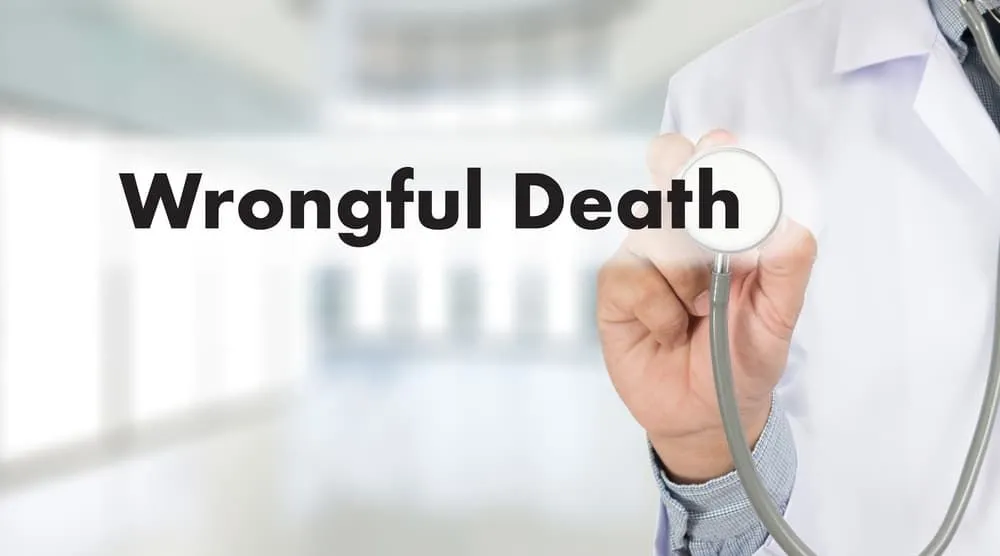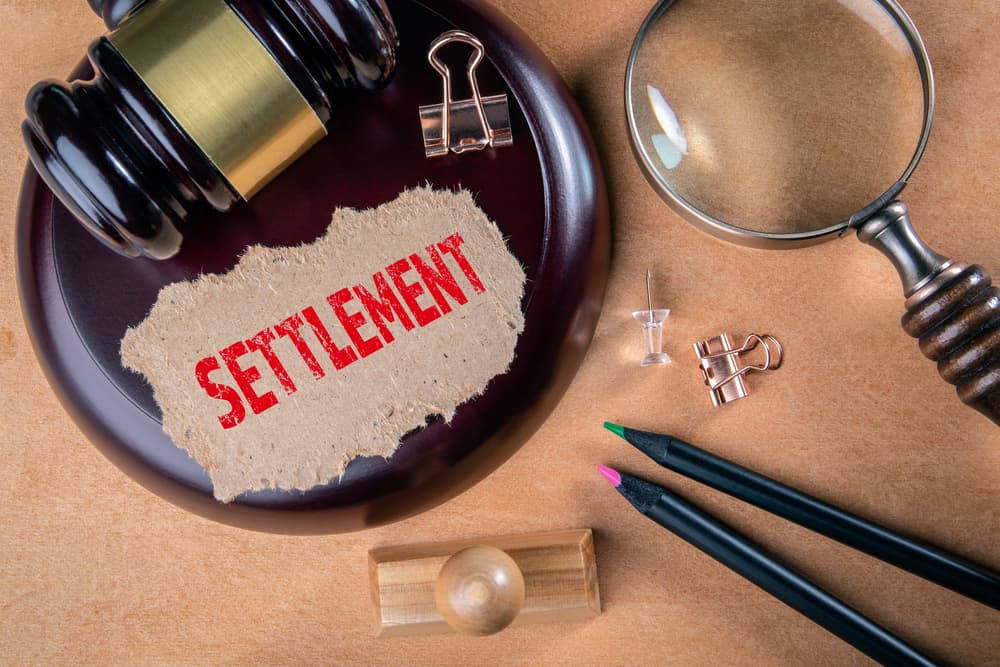Losing someone you love because of someone else's careless actions is one of life's most painful experiences. As you deal with grief, you may also face mounting bills and financial problems.
A wrongful death settlement can help ease these burdens, but many families don't understand how these payments work.
Receiving a settlement isn't as simple as getting a check in the mail. Different payment methods, tax concerns, and other details can affect how much money actually reaches your family. That’s why you need a wrongful death attorney to guide you through the process and protect your interests every step of the way.
What Is a Wrongful Death Settlement?

A wrongful death settlement is money paid to family members when someone dies because of another person's or company's mistake or carelessness. Unlike criminal cases, where someone might go to jail, wrongful death cases are civil matters focused on financial compensation.
These settlements help cover:
- Funeral and burial costs
- Medical bills from before the death
- The person will have lost the income they may have earned
- Loss of companionship and support
- Pain and suffering experienced by family members
Last year, there was a case where another vehicle ran a red light and killed a delivery driver. The family received a settlement that helped them keep their home and pay for the children's college education. Without this money, they will have faced serious financial hardship on top of their emotional pain.
Who Receives Wrongful Death Settlements?
Before discussing how settlements are paid, it's important to understand who can receive them. Each state has different rules about family members who can receive wrongful death money.
Generally, these people may receive payment:
- Spouses
- Children
- Parents (especially for unmarried victims)
- Sometimes siblings or other relatives
The money doesn't automatically go to everyone. The court or settlement agreement will specify which family members receive payment and how much each person gets.
A wrongful death lawyer ensures the claim includes all eligible family members and coordinates the process with you. This helps prevent arguments later and ensures everyone receives fair treatment.
Common Payment Methods for Wrongful Death Settlements
Parties can structure wrongful death settlements in various ways, such as lump-sum payments or scheduled installments. Your lawyer can explain each option and recommend the best fits your situation.
Lump Sum Payments
A lump sum payment means you get all the settlement money in a single payment at once. Most wrongful death settlements come as a lump sum distributed to the eligible parties.
Benefits of lump sum payments:
- You receive all the money right away
- You can pay off large debts immediately
- You have complete control over how to use or invest the money
Drawbacks of lump sum payments:
- You might face a large tax bill in one year
- Without planning, people often spend the money too fast
- You need to manage a large sum carefully
In one particular case, a widow received a $1.2 million lump sum after her husband died in a construction accident. With her lawyer's help, she created a financial plan that paid off their mortgage and set aside money for her children's education. She invested the rest to provide a monthly income for living expenses.
Structured Settlements
Structured settlements provide payments over time according to a schedule. Instead of one big check, you might receive monthly, quarterly, or yearly payments for a set period.
Benefits of structured settlements:
- Guaranteed income for a specific period
- Potentially better tax treatment
- Protection against spending the money too quickly
- Can include larger payments at specific times (like when children reach college age)
Drawbacks of structured settlements:
- Less flexibility with the money
- Might not keep up with inflation
- Difficult or impossible to change once established
A family chose a structured settlement after losing their mother in a medical mistake. They receive monthly payments that cover living expenses, plus larger payments every five years. This arrangement gives them financial stability while they adjust to life without their mother.
Trust Arrangements
Sometimes wrongful death settlements are paid into a trust, especially when children are involved. A trust is a legal arrangement where a person or company manages money for someone else's benefit.
Benefits of trust arrangements:
- Professional money management
- Protection for young beneficiaries
- Controlled distributions based on needs
- Can include special provisions for education, health care, etc.
Drawbacks of trust arrangements:
- Trust management fees reduce the total amount
- Less direct control over the money
- Possible disagreements with trustees about disbursements
How Payment Methods Are Decided

The payment method for your wrongful death settlement isn't random. Several factors influence how and when you receive the money.
Settlement Negotiations
The payment method is part of the settlement negotiations. Your wrongful death lawyer will discuss your needs and goals to determine the best approach. The defendant's insurance company may prefer certain payment methods, but your lawyer will advocate for what's best for your family.
During negotiations, your lawyer might push for specific payment terms based on your family's situation. For example, a partial lump sum with structured payments afterward might be ideal if you need immediate funds for medical bills or mortgage payments.
Court Decisions
If your case goes to trial, the court will decide how to distribute payments. Judges often consider the financial needs of the surviving family members, especially when children are involved.
Courts may order specific payment arrangements to protect vulnerable family members or ensure long-term financial security. Your wrongful death attorney will present evidence about your family's needs to help the court make an appropriate decision.
Family Circumstances
Your family's unique situation heavily influences the payment method. Factors that might affect the decision include:
- Ages of surviving family members
- Financial sophistication of recipients
- Immediate financial needs
- Long-term financial goals
- Special needs of any family members
A wrongful death attorney considers all these factors when recommending payment options. They can explain that the approach offers the strongest financial security for your circumstances.
How Settlement Amounts Are Determined
The total amount of a wrongful death settlement depends on several factors:
- The victim's age and earning potential
- The circumstances of the death
- The number and relationship of dependents
- Medical and funeral expenses
- Pain and suffering experienced before death
- Impact on surviving family members
Your wrongful death lawyer gathers evidence to support the highest possible settlement amount. This might include employment records, professional testimony about future earnings, and documentation of expenses.
Insurance Policy Limits and Their Impact

Most wrongful death settlements are paid by insurance companies, not directly by the person or business responsible. This means the insurance policy limit often determines the maximum possible settlement.
For example, suppose someone causes a fatal car crash and has a $500,000 liability insurance policy. In that case, that might be the most you can receive, even if your damages are much higher. However, there are exceptions:
- Multiple insurance policies might apply
- The responsible party might have personal assets
- In some cases, other parties might share liability
Your wrongful death lawyer will identify all possible sources of compensation to maximize your settlement. They'll investigate whether other parties share responsibility or if additional insurance coverage applies.
Hidden Costs That Reduce Settlement Amounts
Before you calculate how much money you'll receive, be aware of costs that reduce the final amount:
Legal Fees
Wrongful death lawyers typically work on a contingency fee basis, meaning they receive a percentage of the settlement. This percentage usually ranges from 25 to 40 percent, depending on the case's complexity and whether it goes to trial.
While this might seem high, contingency fees make legal representation possible for families that cannot afford it. You don't pay unless your lawyer wins your case.
Case Expenses
Beyond legal fees, there are expenses involved in building a strong case:
- Expert witness fees
- Court filing costs
- Document gathering expenses
- Deposition costs
- Medical record fees
The settlement usually covers these expenses. Your wrongful death lawyer should provide a detailed accounting of all case expenses.
Medical Liens and Outstanding Bills
If the victim had medical treatment before death, those providers might have a legal claim (lien) against the settlement. Similarly, the settlement funds cover any unpaid bills related to the death.
Your lawyer will work to negotiate these liens and bills to reduce their impact on your final settlement amount. In some cases, they can reduce these costs significantly.
Potential Tax Implications
While most wrongful death settlements aren't taxable, certain portions might be:
- Punitive damages (meant to punish the wrongdoer)
- Interest on the settlement amount
- Compensation for lost earnings
It's vital to consult with a tax professional about your specific situation. Proper planning can minimize tax consequences and allow you to keep more of your settlement.
Timeline for Receiving Settlement Payments

The timeline for receiving wrongful death settlement payments varies widely depending on several factors:
- Case complexity: More complex cases typically take longer to resolve.
- Settlement vs. trial: Settlements generally provide payment sooner than cases that go to trial.
- Payment method: Lump sum payments arrive sooner than structured settlements that pay out over time.
- Administrative processing: Even after reaching a settlement, paperwork and processing take time.
Most wrongful death cases resolve within one to three years, though some settle faster and others take longer. Once you settle, expect to wait 30 to 60 days for the first payment.
Your wrongful death lawyer can give you a more specific timeline based on your particular case and the typical time frames in your area.
How a Wrongful Death Lawyer Helps With Settlement Payments
A wrongful death lawyer does more than just file a lawsuit. They guide you through the entire process, including helping you understand and manage settlement payments.
A good wrongful death lawyer will:
- Explain all payment options and their pros and cons
- Recommend the best payment structure for your needs
- Negotiate with insurance companies for favorable terms
- Work with financial advisors to create a long-term plan
- Handle all paperwork and administrative details
- Include all eligible family members
- Address any problems that arise during payment
After losing a loved one, you're dealing with grief and emotional trauma. Making complex financial decisions during this time is extremely difficult. A wrongful death attorney provides the experience you need when you can handle these matters yourself.
Planning for Your Financial Future After a Settlement
Receiving a wrongful death settlement is just the beginning. Planning how to use and protect that money is equally important.
Financial Planning Considerations
Consider working with a financial advisor who focuses on settlement funds. They can support you by:
- Create a budget that makes the money last
- Invest appropriately based on your needs and goals
- Plan for major expenses like education or housing
- Protect eligibility for benefits like Medicaid if applicable
- Minimize tax consequences
Even large settlements can run out fast without proper planning. A financial strategy helps ensure the money provides long-term security.
Protecting Vulnerable Family Members
If settlement funds will support children or adults with special needs, additional protection may be necessary:
- Special needs trusts to preserve benefit eligibility
- Guardianship arrangements for managing children's funds
- Structured settlements with age-based disbursements
Your wrongful death lawyer can recommend specialists who handle these specific situations.
Finding the Right Wrongful Death Lawyer

Having the right wrongful death lawyer makes all the difference in how your settlement is structured and paid. Look for an attorney who:
- Focusing on wrongful death cases
- Has experience with cases similar to yours
- Explains complex issues clearly
- Listens to your concerns and goals
- Has a track record of successful settlements
The initial consultation with a wrongful death lawyer is typically free. Use this time to ask about their experience and approach to settlement payments.
Taking the Next Steps
Losing a loved one is devastating, and dealing with legal and financial matters only adds to your burden. A wrongful death lawyer takes that weight off your shoulders, handling the complex details while you focus on healing.
If you've lost someone due to another's negligence, don't wait to get help. Wrongful death cases have strict time limits, and gathering evidence becomes more difficult as time passes. Contact a personal injury lawyer serving in Winder, GA today to discuss your situation and learn about your options.
Understanding how wrongful death settlements work is key to securing your family’s financial future during this difficult time. With proper legal guidance, you can ensure the settlement provides the support your family needs now and in the future.